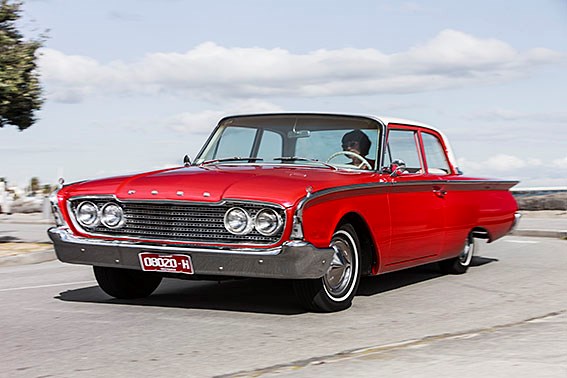I will say one thing about my father (d. 2005). He sure kept a nice yard. Wherever he lived, in Texas or in Michigan, he devoted an inordinate amount of time and energy to fertilizing, watering, mowing and edging his front lawn. I never knew why this was so important to him. Did he see it as an art form? Was he trying to impress the neighbors? Maybe it was a refuge of sorts from the tedium of his job at Ford Motor Company or his familial duties.
The year, I am almost certain, was 1962. We lived on Marlin Drive on the eastern edge of Dallas. Dad, whose name was Edwin Lynn, had made it clear to me and Randy, my older brother, that we were not to play on the yard in front of our house to permit the grass to grow freely. We heard his words and knew that disobedience meant trouble with a capital T.
Let me pause here and say that Dad was a strong believer in corporal punishment. I thought then, and still do, that the whippings we got were too numerous and too severe. I recall an odd discussion among a number of neighborhood boys about whose father hit hardest when using the belt. I thought, “Lord, have mercy on any of these kids whose fathers hit harder than Dad.” He was in an almost perpetual rage during much of my childhood and adolescence, I can tell you that.
We were aware that our front lawn was off-limits and that we should play elsewhere. Randy and I knew better, but there we were one day after school, playing a game of tackle football with some buddies on our father’s hallowed grass. We hoped to finish the game before Dad returned from work, but we lost track of time and soon came to sincerely regret that mistake. From the far end of the street, here he came in his 1960 Ford Fairlane (like the one pictured here, but copper-colored). And there was no doubt, he had seen us. Even from such a distance, the fire in his eyes was evident as he put the pedal to the medal. He was going at a high rate of speed on our normally placid street. To my terrified eyes, the car seemed to be going 40 miles per hour, or 50 or even 60. Dad was accelerating until just before he arrived at our house and jerked into the driveway.
Our friends had already dispersed, knowing that there was going to be hell to pay for Randy and Richard. We were loudly berated by our father and marched inside the house. I am not sure which of us went first, but I remember this as the longest and most violent whipping I ever got from him. Dad didn’t even bother with the usual “This is going to hurt me more than it is going to hurt you.” I hated hearing such a line because it was a bunch of hooey. I never had the nerve to say, “Shut up, old man. Just go ahead and do it. You know you enjoy this.” And if I’d had the presence of mind, I would have asked why his front lawn mattered more than the health and happiness of his children. On and on it went—one ferocious lick after another. Randy and I both wailed loudly under this assault. I suppose that no lasting damage was done, at least not physically.
Our father, not a deep man, never quite understood the difference between respect and fear. The whippings we got from him, such as the one described above, did not engender respect. While I would not purport to speak for Randy or my other two brothers, I think it is fair to say we feared him. What a legacy he left—feared by his children!
Do I overstate the case by saying Dad enjoyed administering corporal punishment? That is not my intent. I only seek to remember things as they were, and I know he dealt poorly with frustration. He handled his frustrations in the worst possible way, by taking things out on those around him. It might have been different. When he came home from work that day, he could have gathered his two football-playing sons on his knee and gently reminded us that he wanted to let the grass on the front yard grow straight and green. And then—why not?—he could have gone into the street with us and thrown the football around for a few minutes before Mom had dinner ready. That would have made for very different memories.


Add Comment